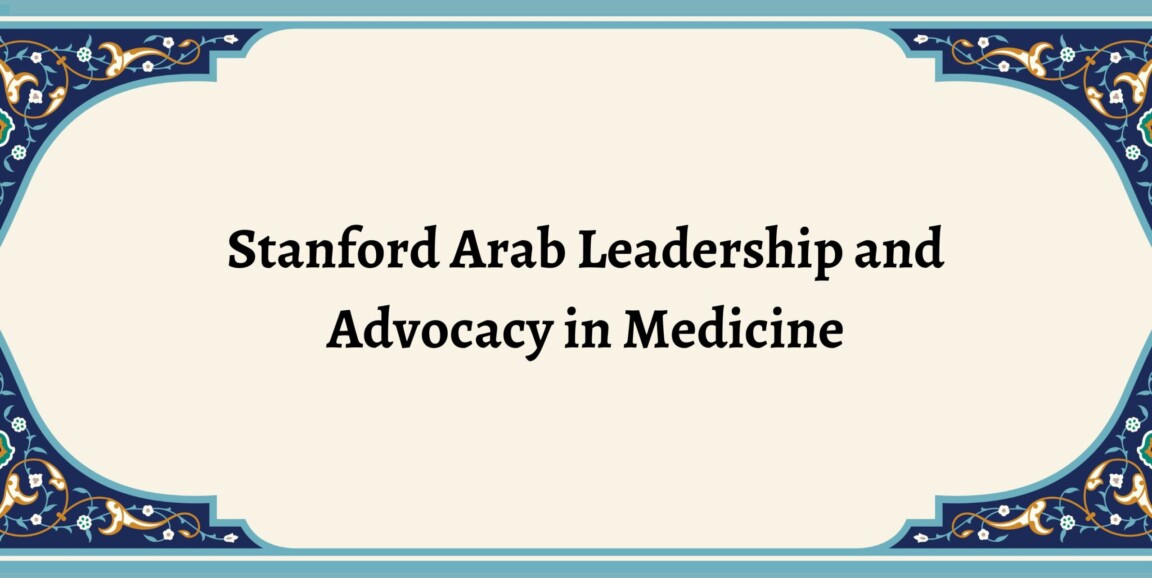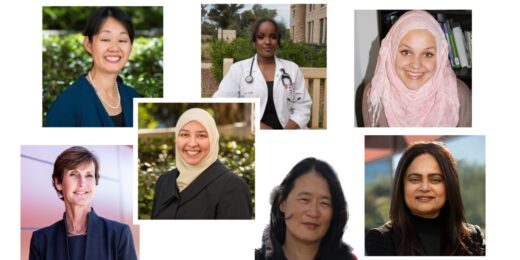When they were first-year medical students, Layla Aboukhater and Charbel Bou Khalil felt strongly that they wanted a place for Arab American medical students to connect, discuss the issues that mattered to them and support Arab leadership in medicine. When they couldn't find a student organization that fostered the sense of community they were after, they created one.
In February 2021, they launched the Stanford Arab Leadership and Advocacy in Medicine (SALAM, which means peace in Arabic) with help from the current advisor of the group Laila Soudi, a researcher in pediatrics and the cofounder of Stanford Medicine's MENA Health Program.
One of the group's newest and most prominent goals is to find ways to collect more medical data from people with Arab roots (and roots in other regions in the Middle East, North Africa and Southwest Asia, which the group has expanded to include) to better understand their health needs. Data from these populations is limited, narrowing health care professionals' ability to provide fully informed care. Now, the group is working to build the infrastructure to reach their goals.
Aboukhater and Yousof Fawzy, a second-year med student, who now co-lead the group, spoke about what fuels their advocacy work and why Arab representation matters in medicine.
How does Stanford Arab Leadership and Advocacy in Medicine engage with the Stanford Medicine community and beyond?
Fawzy: A big part of what we do is foster a sense of community at Stanford Medicine for folks who identify as Arab. That's important, especially for people who come from all over the country or have recently immigrated to the United States. We provide opportunities for connection among Arab undergraduate students across Stanford University who want to apply to medical school, as well as current Stanford Medicine medical students and postdoctoral scholars by putting on activities that foster community. The group also offers outlets for early-career medical professionals to practice leadership skills, such as giving inspirational talks to the group, and offers guidance during the medical school application process. We host virtual office hours, during which we practice mock interviews; discuss strategies for taking the MCAT, the standardized test for medical school applicants; and provide edits and feedback on personal statements. We also draft commentary articles that we plan to submit to journals detailing why examining the health needs of Arabs is important.
Can you speak about Arab American representation in health data?
Aboukhater: There's just not enough data on Arab Americans. There's no easy way to track their unique health needs, because Arabs are classified as white on national censuses, limiting the information needed to properly advocate for this group.
Fawzy: A lot of public health and federal funding comes down to that sort of data. We saw that happen during the pandemic, when certain interventions were targeted to different ethnic groups that had comparatively worse outcomes. Data demonstrates the need for funding of specific public health interventions. Our goal is to advocate for the data from the Arab community to ensure that their health care needs are being met.
What prompted you to get involved in this work?
Aboukhater: Representing Arabs in medicine means better representation and cultural awareness of Arabs overall. For instance, it's important to not conflate religion with culture, as is often done. Most Arabs are Muslims, but most Muslims are not Arab. Differentiating the two is one of our goals, along with highlighting the diversity of Arab religious and cultural backgrounds.
Fawzy: I'm very passionate about giving a voice to those who don't have an opportunity to speak for themselves. I pursued medicine after witnessing how people with chronic conditions in Egypt -- where my family lives -- did not have access to a robust health care system. It made me want to find a way to empower more vulnerable groups.
Photo by Azat1976






